Past Programs

1997–1999: Vietnam Medical Education
The Medical Education Program was an exchange program between George Washington University School of Medicine in the U.S. and Hue Medical College in Vietnam. The multi-year program built knowledge and technical capacity among Vietnamese doctors and students, while providing international opportunities for U.S. doctors, administrators and students to learn about Vietnam’s health situation and provide technical assistance. For instance, Uplift International in cooperation with the National Fund for Vietnamese Children (NFVC), initiated a pilot program to upgrade the level of anesthesia services of St. Paul’s Children’s Hospital that included a donation of anesthesia equipment and training of physicians and nurses. Uplift International participated in training medical professionals in other hospitals in Vietnam and donated medical books to improve the medical library system.
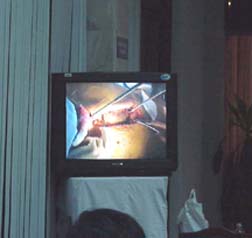
1998: Telemedicine, Vietnam
The first successful telemedicine link between Vietnam and the United States was conducted by Uplift International and The University if Vermont College of Medicine/Fletcher Allen Healthcare In 1998.
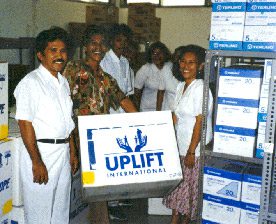
1998: Airlift I , Indonesia
The Asian economic crisis that started in 1997 wrought havoc on the Indonesian economy. A large portion of its population slipped into poverty and a healthcare crisis ensued. In September, 1998 when a FedEx DC-10 touched down in Jakarta. The shipment valued at $1.3 million (wholesale value) was distributed to four hospitals indifferent parts of the country. The donated medicines and medical supplies were specifically requested by the hospitals. A complete list of donated items were carefully coordinated with the recipient hospitals and the Indonesian Ministry of Health. Uplift International also worked with The World Health Organization (WHO) on the importation of the shipment.

1999: Medical Airlift II, Indonesia
Uplift International continued to respond to the needs of Indonesian hospitals by providing medicines and medical supplies. A second airlift provided commodities worth $726,000 (wholesale value).

1999: Cyclone Relief, Vietnam
Uplift International and Project HOPE airlifted medicines and medical supplies to Central Vietnam in response to the cyclone of 1999 that caused massive flooding. The medicines and medical supplies replaced the supplies that were damaged in the flooding. Not only did the supplies go to Hue Central Hospital in the imperial city of Hue and to Quang Tri Provincial Hospital in Quang Tri along the old DMZ, but supplies were distributed to medical facilities throughout the coastal region.

2000: Indonesia Internally Displaced Persons (IDP) Assessment
Working under a grant from the U.S. Agency for International Development (USAID), Uplift International conducted an assessment of the conditions of internally displaced persons (IDPs) forced to leave their home during the civil war in Aceh Province in North Sumatra, Indonesia. This assessment was used by USAID to determine the necessary next steps for assistance to the IDPs.

2000–2003: Maternal & Child Health – Indonesia
This multidisciplinary project in Surabaya, East Java, Indonesia, focused on improving child survival in one of the most vulnerable populations –-severely malnourished children under age five years. Uplift International provided training to health professionals in follow-up patient care and family nutrition education from 1999 – 2002.
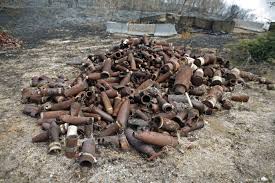
2001: Vieques, Puerto Rico Health Assessment
Uplift International’s reputation for innovation and effective program implementation prompted the U.S. Navy to select the organization to conduct a comprehensive health assessment of the island of Vieques, Puerto Rico and recommend health projects that would respond to the needs of the people.
For sixty years the U.S. Navy operated a highly controversial test bombing range on the small island. It was a lightning rod for protest by local and outside activists that brought world-wide attention to the alleged detrimental health effects of the bombings on the population of the island. Working at the grass roots level within the Vieques community, Uplift International developed a health plan for the Navy that addressed leading health concerns of the population, while providing improved access to preventive care.

2003: Indonesia Health and Human Rights Conference, Indonesia
Uplift International spearheaded and supported the first health and human rights conference in Indonesia in collaboration with the Indonesian Doctor’s Association. The conference brought together health and legal professionals and the Indonesian Ministries of Health and Justice, as well as representatives from NGOs, government organizations and donors. Presentations and discussions were focused on leading health issues in Indonesia and multidisciplinary solutions to helping all Indonesians, especially the most vulnerable, improve health, well-being and justice.

2004–2006: Indonesia Tsunami/Earthquake Relief/Rebuilding
Within 24 hours of the Indian Ocean tsunami that hit Aceh, Indonesia in 2004, Uplift International airlifted 25 tons/$7million of medicines & medical supplies to the survivors of the earthquake/tsunami. It funded 320 Indonesian doctors and other health professionals to staff 15 camps for displaced persons. The effort treated 19,000 patients. We also rebuilt the research library, computer center and classrooms of Syiah Kuala University Medical School, the only medical school in the province of Aceh.

2005–2013: Indonesia School Health & Nutrition
In schools around Jakarta, Indonesia, students, teachers and families rolled up their sleeves and learned about good health and nutrition by growing their own organic vegetables. Our school gardening activity was partnered with a classroom health and nutrition education program and it served the neediest children in 89 religious and public schools. The program partnered with the Ministry of Agriculture and was ultimately supported independently by the Government of Indonesia. This program was also a corporate social responsibility project.
The health and nutrition education program started with 30 schools with a total of 6,000 students and grew to 89 schools and over 18,000 students. Our program helped the most vulnerable children learn about and improve their health and nutrition. Our program was guided by the UN Millennium Development Goals and the UN Convention on the Rights of the Child.
Our health and nutrition education program focused on building a curriculum in schools for grades 1-6. We trained teachers and parents so students and families could learn and practice healthy behaviors. Uplift staff mentored the teachers as they taught and the staff monitored the schools to assure that the health and nutrition curriculum was integrated into the school curriculum.
The program lasted for 8 years and included activities to promote healthy behaviors among students. The program also improved sanitation in the schools by upgrading existing facilities in the schools. Local health centers were linked to the schools and medical staff visited schools to screen children for common infectious diseases. Computer labs for additional health and nutrition training were created in partnership with Microsoft’s Partnership in Learning Program.

2006: Earthquake Relief, Central Java, Indonesia
A magnitude 6.3 earthquake struck Yogyakarta, Indonesia in the predawn hours of May 27, 2006, causing over 5,700 deaths and approximately 3600 injuries. According to the Government of Indonesia, 343,000 people were displaced. Uplift International supported volunteer doctors to care for the wounded in hospitals, health centers and temporary health clinics.

2007: Disaster Management Training, Indonesia
In 2007, Uplift International conducted a four-day training seminar for doctors from many provinces throughout Indonesia. The training focused on rapid disaster response, coordination with the government and operating procedures within the Indonesian Doctors Association for disaster management.

2007: Avian Influenza (AI), West Java, Indonesia
During the Avian Influenza (AI) epidemic in Indonesia, Uplift International trained 80 representatives from 80 villages on preventing AI and strengthening the early detection and response system in the Cianjur district in West Java. These village representatives comprised community leaders, youth leaders, midwives, and health and agriculture personnel. During the training, they learned how to detect and report suspected AI cases and then, when necessary, refer to local health centers. Community-based training, such as this, is critically important to control epidemics, such as Avian Influenza.
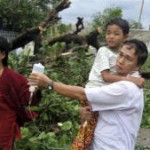
2008: Cyclone Relief, Myanmar
Cyclone Nargis devastated the Burmese delta region with a death toll of over 100,000 dead or missing. For those who survived, close to 1.9 million were displaced and needed food, water, shelter, and medical supplies. Uplift International partnered with local NGOs and trusted Buddhist monasteries in Myanmar to provide emergency relief to rural and poor communities that were affected by the Cyclone Nargis.

2009–2011: Ending Violence Against Women and Children, Indonesia
Millions of Indonesian women and children are victims of violence. Many live in silence. They are not easily identified and well cared for by the current systems. Uplift International worked in the health and legal sectors in Jakarta, Indonesia to create a model of improved health and legal services for victims of violence by training professionals to care for women and children who have been exposed to violence.
Uplift International implemented a pilot project in response to the problem of violence against women, young adults, adolescents and children in two districts of Jakarta. Building on existing programs and relationships with health sector professionals in the five city districts of Jakarta, we developed a multidisciplinary, comprehensive approach to the problem. The goal of the health component was to create a model system that respected the women and child victims of violence and improved early diagnosis, appropriate treatment, referral, protection, documentation and reporting of the violence. Leveraging the health component, we also developed a complementary program in the legal sector.

2009: Earthquake Relief, West Sumatra, Indonesia
In September 2009, a powerful earthquake struck off the West Sumatra coast in Indonesia, measuring 7.9 on the Richter Scale. This was followed by another two deadly earthquakes which triggered landslides. The earthquakes left a trail of destruction and caused the death of at least 1,117 people and severely injured another 1,214 people. In addition, approximately 135,000 houses were severely damaged, 65,000 houses were moderately damaged and 79,000 houses were slightly damaged. An estimated 250,000 families (1,250,000 people) were affected by the earthquake through the total or partial loss of their homes and livelihoods.
Uplift International and Project Hope partnered in the relief effort. Long term Uplift corporate partners FedEx and APL/APL/Logistics provided free shipping/logistics for the relief effort to provide $2.1 million/16 tons of medicines and medical supplies for emergency earthquake relief efforts to 6 hospitals and 14 puskesmas (local health centers). Uplift relief teams assisted local efforts to assist in the most severely damaged areas for months after the earthquake.

2009–2013: Accountability for Women’s Health Indonesia
Holding governments accountable for their legal and political obligations to women’s rights requires civil society to have the skills and capacity to actively engage in activities not only at the national level but also at the local level of government. Uplift International implemented a program in Indonesia that focused on accountability for women’s right to access health services in the local government municipalities or districts, which administer health services. The work responded to local women’s voices about their need to access maternal health and family planning services, as well as health services for women and girl victims of violence.
This work to hold local governments accountable involved an assessment of gender responsive budgeting or GRB. Women’s health is directly related to resources available for health services. GRB provides a critical process for analyzing the gaps between government policy and reality for women’s health services.
Uplift International partnered with six Indonesian NGOs to dig deep into the local budgeting for women’s reproductive health and learn why women were not able to access reproductive health services. Was it budget mismanagement or misallocation of funds? Our project trained NGOs to conduct GRB, which entailed analysis to check what money is allocated to implement the government’s reproductive health policy, whether this money was spent as allocated, whom it reached, and how/whether it changed access to health services for women.
Focusing on budgeting for women’s reproductive health was directly related to women’s health and the right to universal access to health services. Read the blog in Harvard’s Health and human Rights Journal.

2013: Women’s Health Outreach, Indonesia
Uplift International provided women’s health education to the mothers of students in our School Health and Nutrition Program. A series of presentations by Indonesian doctors informed young mothers and other school community members about nutrition, prevention of infections, healthy lifestyles and reproductive health.
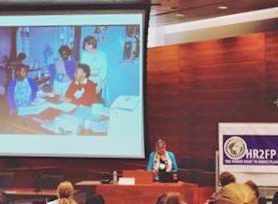
2015: Human Right to Family Planning Conference
Uplift International’s president and board members participated in this groundbreaking conference at the University of Washington. Learn more.
